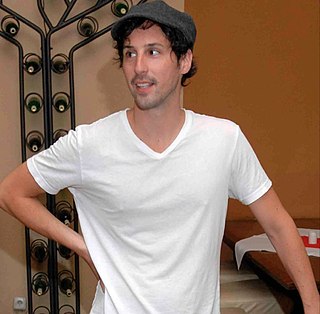A Quote by Joe Sabia
In 6,000 years of storytelling, [people have] gone from depicting hunting on cave walls to depicting Shakespeare on Facebook walls.
Quote Topics
Related Quotes
I suppose I can live with missing decimals, missing floors to tall buildings, and floors that are named instead of numbered. A more serious problem is the limited capacity of the human mind to grasp the relative magnitudes of large numbers. Counting at the rate of one number per second...to count to a trillion takes 32,000 years, which is as much time as has elapsed since people first drew on cave walls.
The walls between old allies on either side of the Atlantic cannot stand. The walls between the countries with the most and those with the least cannot stand. The walls between races and tribes; natives and immigrants; Christian and Muslim and Jew cannot stand. These now are the walls we must tear down. We know they have fallen before.
In the 20th century, we built a lot of walls - we endlessly tried to build walls between us and people we perceived, correctly or incorrect, as our enemies. In the 21st century, because of the advent of networks, the free movement of goods and people across the globe, we need to build security by building bridges instead of building walls.
Superhero power... I probably would just want to fly. I definitely would not want to be able to see through walls. I think walls are there for a reason. People put them up for a reason. You don't want to be looking through them. That would only cause nothing but misery and angst to know what's happening behind people's walls.































